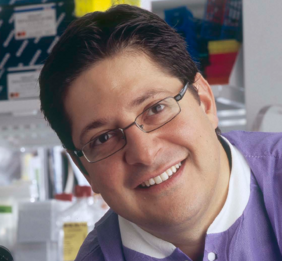will take place on Tuesday, May 16, 2017 from 17:15 to 18:15 hours in CBBM Building, EG, Room B1/B2.
Host: Prof. Dr. Hendrik Lehnert
Department of Internal Medicine I
University of Lübeck
Abstract
This talk will focus on how inflammation in the adipose tissue contributes to metabolic dysregulation.
Biosketch
Dr. Chavakis received his M.D. from Justus-Liebig-University Giessen in 2000 and completed the doctoral thesis (Dr. med.) in 2001 with a grade of summa cum laude in the group of Prof. K.T. Preissner at Max-Planck-Institute for Physiological and Clinical Research, Bad Nauheim and Institute for Biochemistry, Justus-Liebig-University Giessen. After two years of residency at the Department of Internal Medicine (Chair Prof. P. Nawroth), University Clinic Heidelberg he accepted the position of a tenure-track Principal Investigator at the National Cancer Institute, National Institutes of Health (NIH), Bethesda, MD, USA and headed the Inflammation Biology Section. In 2010 he returned to Germany and was appointed Professor (W2) and Chief in the Division for Vascular Inflammation, Diabetes and Kidney, Department of Internal Medicine III at University Clinic Carl Gustav Carus, Dresden University of Technology. In 2014 he was appointed Professor (W3) in the Department of Pathobiochemistry at University Clinic Carl Gustav Carus in Dresden. Since 2017 he has been Chair of the Institute for Clinical Chemistry and Laboratory Medicine.
The scientific focus of our group is at the crossroads of Immunology, Inflammation, Vascular Medicine and Metabolism; we try to merge Basic Science and Translational Medicine by engaging preclinical translational models. We aim at identifying the role of mechanisms pertinent to immunology and vascular inflammation, especially leukocyte recruitment and activation, in the regulation of metabolic pathologies, such as the development of insulin resistance and type 2 diabetes mellitus, the vascular complications of diabetes mellitus, especially diabetic retinopathy, as well as in inflammatory and autoimmune disorders.


